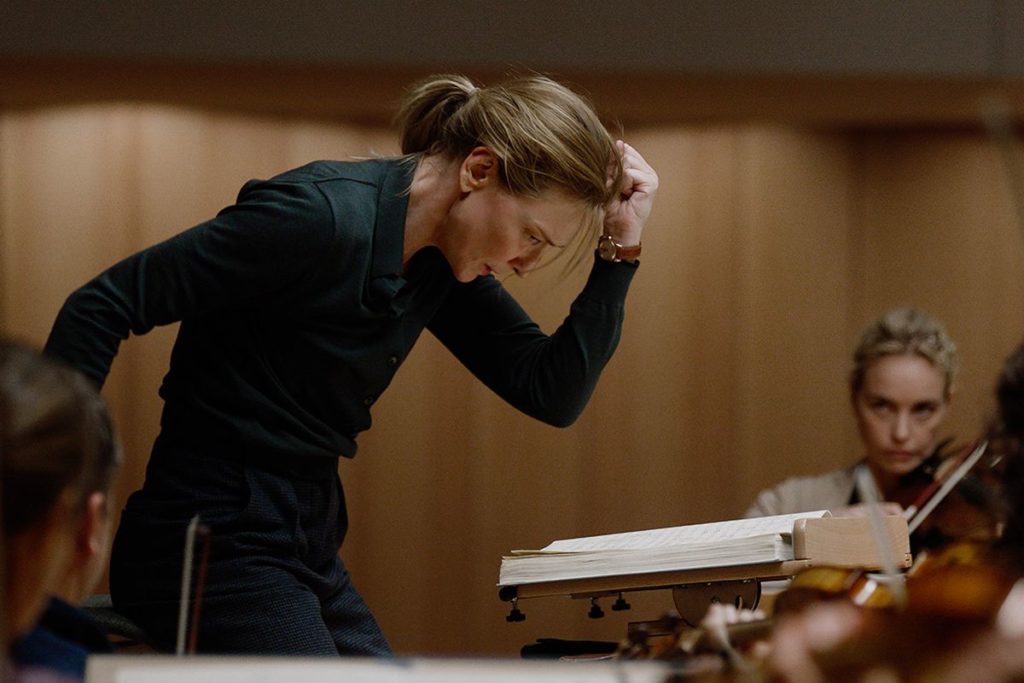Gods of Mexico, an Artistic Triumph that Eschews Narrative
The documentary depicts the indigenous people of Mexico with sublime reverence, highlighting a generational harmony with the land.


Tár, written and directed by Todd Field (Nick Nightingale in Kubrick’s Eyes Wide Shut) may be the first film of the post-MeToo era to tackle the subject from the perpetrator’s point of view. It’s a bold angle, unique in its embodiment of a perspective devoid of empathy or care for the lives crushed in the name of artistic creation. The film seems aware of the treacherous terrain, and treads hot coals as elegantly and as powerfully as a conductor’s flicking wrist.
Cate Blanchett plays the titular Lydia Tár, a contemporary conductor juggling her commitment to the Berlin Philharmonic alongside her (often shirked) responsibilities to her wife (Nina Hoss) and daughter, an imminent book release, and writing her own symphonic magnum opus. From the spoken inventory of her intellectual, professional, and artistic accolades that opens the film, a red carpet is unrolled that becomes increasingly muddied as it spirals into a cheeky denouement, juxtaposing Tár’s artistic endeavors against the reality of the world outside her creative bubble. She exists primarily in a sphere of private jets, supper clubs, piano benches/conductor podiums, and bespoke ateliers—anything that falls outside this ilk of luxury and privilege is seen, to Tár, as a rude inconvenience and intrusion.
The film’s main conflict exists on the periphery, roiling offscreen and slowly circling and penetrating the conductor’s day-to-day. She is accused of sabotaging a former student and lover’s musical career, resulting in her suicide, allegations that Tár seems only minimally interested in and even less internally plagued by. She does her best to erase any evidence of their relationship—going so far as to have her assistant (another former lover with jilted career aspirations, played by Noémie Merlant) delete incriminating emails—before it affects her career, to no avail. This egocentric megalomania is but one aspect of the problematic behavior of which Tár is regularly accused, though the audience is allowed only hints of its veracity and implications. She gaslights her wife, gags at the squalor of her sickly neighbors, shamelessly womanizes her female admirers and engages in morally dubious relationships with her musical protéges.

The film elides explicit depictions of her more serious transgressions. Since the events are shown from Tár’s perspective as she toils over one masterpiece or another, the consequences of her exploitative and manipulative behavior fall into the category of “real-world intrusions” that only serve to distract her from her work.
To avoid absolving its main character, the film adopts a singularly anti-climactic narrative, forgoing redemption and allowing space for a dialogue that weighs the merits of artistic creation against the moral shortcomings of the artist herself. In a post-MeToo era in which reckoning with the personal lives of artists is now common practice, Tár is something of a unique case; the film seems to waver in a limbo, free of a dogmatic thesis, instead telling its story with an eerie Kubrickian distance that permits room for viewers to cultivate their own judgments and conclusions. Tár navigates a touchy subject without overtly sympathizing with or condoning the guilty party’s behavior, and exhibits the consequences with a truly ironic dissonance. It’s hard not to chuckle when the final credits roll.
Related lists created by the same author
The documentary depicts the indigenous people of Mexico with sublime reverence, highlighting a generational harmony with the land.
Related diversity category
Disney’s Hunchback of Notre Dame is a unique film coming from the same studio that brought us The Little Mermaid and Aladdin. While it does have its silly moments to maintain Disney’s family-friendliness, it also carries themes that stick to audiences years after its release.
Related Movie / TV / List / Topic
Love, Simon (2018) based on the book “Simon vs The Homo Sapiens Agenda” (by Becky Albertalli) is a teen LGBTQ+ rom-com with themes of longing to find others with similar struggles, and ultimately is a story of acceptance of identity from those around you, and most importantly, from yourself.